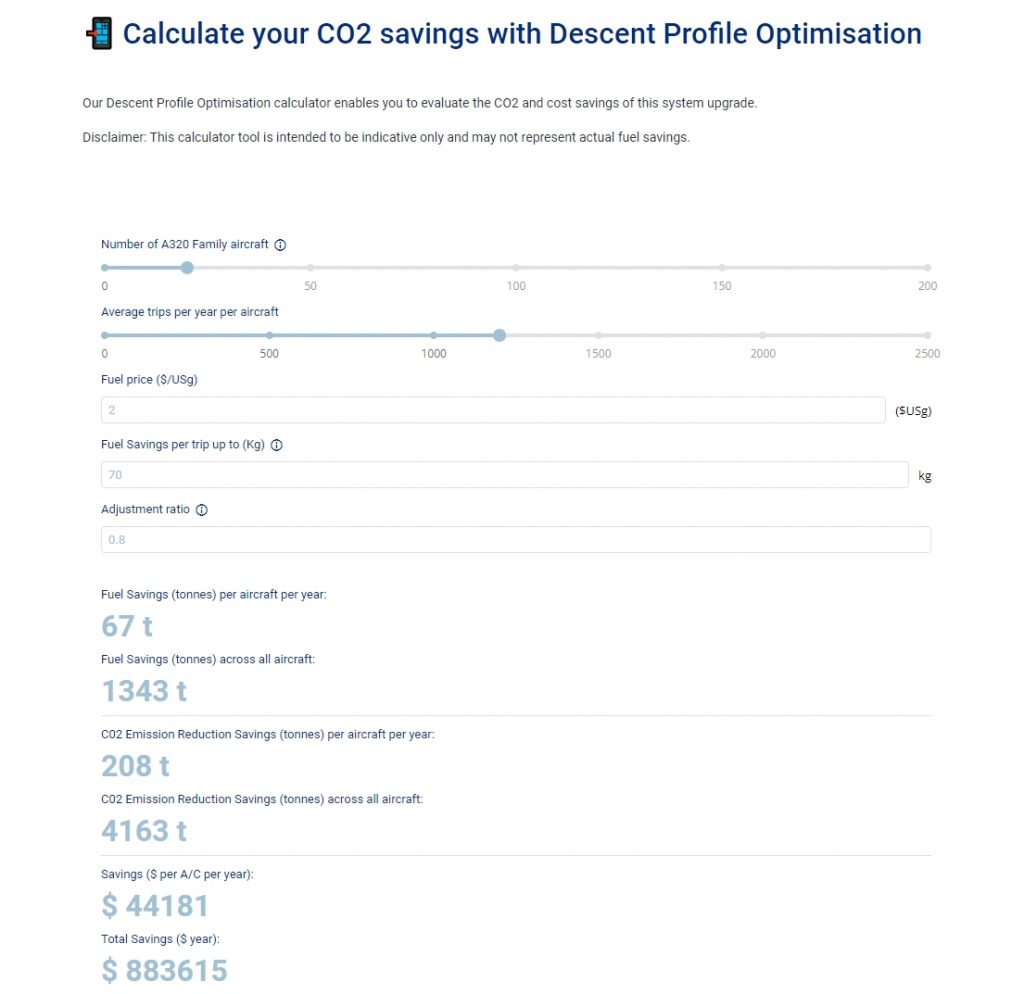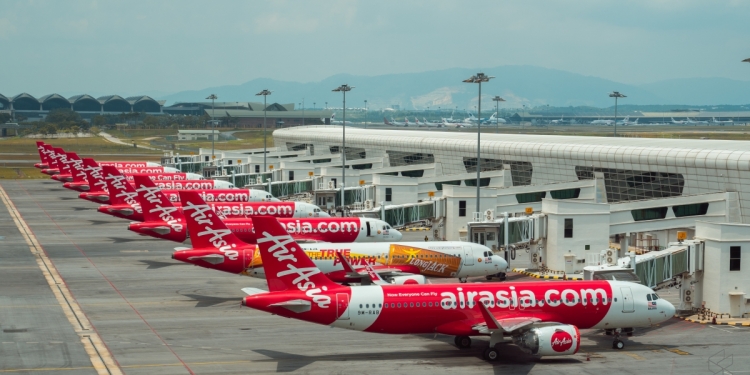In conjunction with World Environment Day which is happening this Sunday, 5th June, AirAsia has announced its green initiative to cut down on greenhouse gas emissions and to increase the fuel efficiency of its aircraft. Starting this month, the low-cost carrier will be installing the Descent Profile Optimisation (DPO), a software upgrade on its Airbus A320ceo fleet which promises to offer fuel savings and significantly reduce carbon dioxide (CO2) emissions.
According to AirAsia, the enhancement to the aircraft’s onboard Flight Management System (FMS) performance database allows the aircraft to optimise the descent phase of the flight which subsequently minimises the amount of time spent at an inefficient level off. It is expected to improve fuel efficiency by up to 0.75% of fuel burn which is equivalent to saving 101kgs of CO2 emissions per flight. Over a full year, AirAsia estimates a reduction of 221 tonnes of CO2 emissions per aircraft, which is said to be a considerable contribution to more sustainable flight operations.
For the initial phase, the DPO upgrade will be installed on 17 aircraft and the move would translate to 3,764 tonnes of CO2 saved per year, or equivalent to 62,700 urban trees planted based on the US EPA Greenhouse Gas Equivalencies calculator. Airbus has also provided a CO2 savings calculator for the DPO feature. For an airline with twenty A320 aircraft that flies an average of 1,200 trips per year each, the feature is estimated to reduce total CO2 emissions by 4,163 tonnes and deliver a fuel savings of USD 883,615 (about RM3.88 million) per annum. The DPO is available for the A320 (except for A319CJ and A320LIP) and A330 series as software-only upgrade.

AirAsia Aviation Group Limited Group CEO Bo Lingam said, “As the travel industry begins to recover and we expect to get back to pre-pandemic levels by the end of this year, it is important that we review our climate strategy and put in place new mechanisms and processes that will help to minimise the environmental impact of our flight operations. Installing the new flight operations optimisation solution for our current A320ceo aircraft allows us to reduce our carbon footprint for the short and medium-term as we continue to gradually upgrade our fleet to the higher capacity and more fuel-efficient A321neo in the longer term.”
“Given the reality of climate change and the airline industry’s contribution to emissions, reducing our carbon footprint is currently one of our top sustainability priorities and we look forward to further reducing an additional 221 tonnes of CO₂ emissions per aircraft each year with the DPO system we are implementing. We remain committed to ensuring not only that we build a sustainable airline but also align with the aviation industry’s sustainability goal to reach net-zero by 2050.,” he added.
Besides upgrading the software of their aircraft, AirAsia has also implemented several other measures to reduce fuel consumption and carbon emissions which have reduced 11,175 tonnes of CO2 in 2021. This includes implementing the One Engine Taxi procedure where the aircraft operates just one engine instead of two during the taxi phase of the flight. Other measures also include Idle Reverse Landing which uses idle engine thrust upon landing to reduce noise and fuel burn, as well as the Required Navigation Performance-Authorisation Required (RNP-AR) approach that uses the aircraft’s advanced navigation capabilities instead of conventional ground-based equipment for the shortest landing approach.
Malaysia Airlines has recently announced its first passenger flight which will utilise Sustainable Aviation Fuel (SAF) on its return flight between Kuala Lumpur and Singapore this coming Sunday. Unlike its initial flight from Amsterdam to Kuala Lumpur which uses a SAF blend containing used cooking oil, the flag carrier has clarified that the upcoming flight on the Boeing 737-800 to Singapore will be using a different SAF that contains renewable waste and residue raw materials such as animal waste.
Related reading
- [UPDATE] Malaysia Airlines will operate its first flight powered by Sustainable Aviation Fuel to Singapore this Sunday
- Malaysia Airlines flies first flight using a fuel mixture containing used cooking oil
- All unused AirAsia X credits are converted to vouchers. Here are the terms and conditions
- AirAsia has settled 99% of RM7.6 billion cash refund requests by passengers








